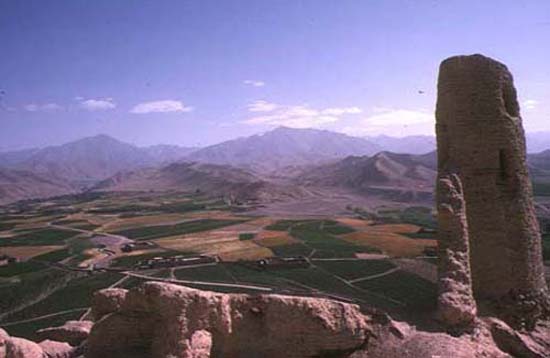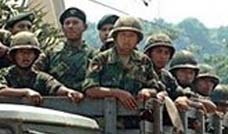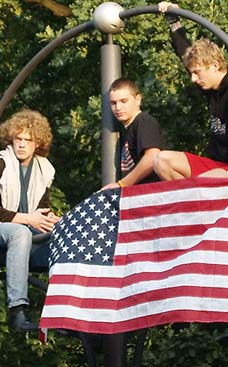
Mr. Greenburg was in his second year in the Peace Corps in a country where the daily struggles and perils compelled nearly half of the 90 volunteers to leave early -- giving it the distinction of having the highest attrition rate of any posting in the world. About 30 years later, Mr. Greenburg, who has been teaching in Chatham for the past 13 years, recalled his experience in Afghanistan as he sat in his town house in North Caldwell -- a stark contrast to the tiny dwelling he had shared in Afghanistan with another volunteer from 1968 through 1970. He remembered losing 38 pounds during his first month there after contracting a variety of intestinal diseases from the food and water. He told stories he heard two days before he came home, about mullahs pouring acid on the legs of women who dared to wear miniskirts on the streets of Kabul. He leafed through letters he wrote that sometimes described feelings of depression, thoughts of leaving the program early and frustration with feeling unappreciated by the Afghans. But he also spoke with an intense passion for a country where, he said, despite all the hardship, the people maintained a dignity and hospitality that was also apparent. ''You learn to love these people,'' Mr. Greenburg said.''Was I an agent of American imperialism?'' he said. ''I was. There's no doubt about it. It was the cold war. I knew why I was there. But I never had any message to indoctrinate.'' Today, at least one of those volunteers is indeed sending ideological messages to the Afghan population. Mr. Greenburg's close friend in the Peace Corps David Champagne is a civilian analyst for the Army's psychological operations unit -- or Psyops -- which uses propaganda to influence public opinion there. Many of the volunteers who toiled in that rugged country have been in touch since Sept. 11, sharing feelings of grief for the Afghans. ''I've had moments of overwhelming sadness, because it was a country that had so little to begin with, and now seems to have less,'' said Margaret Murphy, a friend of Mr. Greenburg's who had volunteered in the city of Lashkagar and currently lives in Wisconsin.
Jonathan Greenburg looks back at Afghanistan after thirty years
Kandahar: Looking Back
By SARAH RUBENSTEIN
Published: December 23, 2001
IN a letter home, Jonathan Greenburg tried to describe to his parents the ethnic conflict he was witnessing in Afghanistan. A student strike had spread from Darweshan, the village where Mr. Greenburg taught, to Kandahar, about 100 miles to the northeast through arid desert that he likened to the surface of the moon.
The underlying issue, wrote Mr. Greenburg, was a rivalry between the Pashtuns, the dominant ethnic group in Afghanistan that made up 40 percent of the population of over 15 million -- and other groups.
''The Pashtuns claim to be the 'real' Afghans and want control in the government,'' wrote Mr. Greenburg, who these days teaches at Chatham High School.
When Mr. Greenburg, a Peace Corps volunteer, wrote that letter in early 1970, Afghanistan was as far from anybody's radar screen as, well, Afghanistan. And the young teacher -- the son of a rabbi who was active in the American civil rights movement -- lamented the futility of his efforts to help people who were so divided.
This was almost 10 years before the invasion by the former Soviet Union -- which wanted to install a government there friendly to its own agenda -- paving the way for a civil war and the punishing rule of the Taliban.
Mr. Greenburg was in his second year in the Peace Corps in a country where the daily struggles and perils compelled nearly half of the 90 volunteers to leave early -- giving it the distinction of having the highest attrition rate of any posting in the world.
About 30 years later, Mr. Greenburg, who has been teaching in Chatham for the past 13 years, recalled his experience in Afghanistan as he sat in his town house in North Caldwell -- a stark contrast to the tiny dwelling he had shared in Afghanistan with another volunteer from 1968 through 1970.
He remembered losing 38 pounds during his first month there after contracting a variety of intestinal diseases from the food and water. He told stories he heard two days before he came home, about mullahs pouring acid on the legs of women who dared to wear miniskirts on the streets of Kabul. He leafed through letters he wrote that sometimes described feelings of depression, thoughts of leaving the program early and frustration with feeling unappreciated by the Afghans.
But he also spoke with an intense passion for a country where, he said, despite all the hardship, the people maintained a dignity and hospitality that was also apparent.
''You learn to love these people,'' Mr. Greenburg said.
Mr. Greenburg lived and worked in Darweshan, an isolated village of 300 on the Dasht-e-Margo, or ''desert of death,'' a flat, arid area with sand dunes and little else to break the monotony. He taught English to high school students at the Helmand Valley Vocational-Agricultural School, a boarding school on the site of an abandoned American development project.
Electricity and running water operated for only an hour each day, placing strict limits on Mr. Greenburg's lifestyle, let alone his recreational activities. There were no television stations and only one radio station -- the BBC -- broadcast in English.
Bill McMeekin, Mr. Greenburg's Peace Corps roommate, remembers plowing through ''War and Peace'' in a week and appreciating the arrival of record albums that friends back home would send the men to play on Mr. Greenburg's battery-operated record player.
''Out of nowhere an album would arrive, and we'd just go crazy with it -- every lick, every lyric,'' said Mr. McMeekin, who lives in Seattle.
But they appreciated the limitations, at least in retrospect.
As Mr. Greenburg put it: ''What it did was take me off the treadmill of this often mundane middle-class life. It just leaves you alone with yourself.''
Not that he was often alone. Darweshan was on a heavily traveled route, and caravans of Afghan nomads passed through the village every day. Mr. Greenburg said he chatted with many of them in teahouses for hours, and he recalled their openness and warmth, describing them as people without pretensions.
The Afghans were poor, no doubt, Mr. Greenburg said. But they had dignity.
Where clusters of widows beg in the streets of Kabul today, Mr. Greenburg said he almost never saw beggars then. People carried themselves in a way that commanded respect, and they were willing to give, no matter how little they had.
Still, the culture frustrated Mr. Greenburg. The women were not mandated to wear head-to-toe gowns, and they were allowed to work in government and as teachers, doctors and nurses. But they led restricted lives nonetheless.
About five Afghan teachers on staff at the school where he taught had earned master's degrees in the United States. Even though these teachers had tasted Western culture and were friends of his, Mr. Greenburg never met their wives.
''We went home for dinner, the wife would come out in a veil, serve the meal, and leave,'' said Mr. Greenburg, who today has a wife and three daughters. ''You're not going to change this country overnight.''
Although some women in the cities did not conform to the custom, the majority wore coverings from head to foot, with screens over the eyes. Many of the female Peace Corps volunteers bought veils so they would not be harassed for their immodesty.
Afghanistan's lack of Westernization stemmed partly from the inability of any country to colonize it. Imperialism there was thwarted by a people who, according to Mr. Greenburg, have always maintained their ferocity.
The national sport then -- and now -- involves men on horseback charging a dead goat, plucking it up, carrying it a distance and returning it to its point of origin. There were no rules.
''It was brutal -- the essence of manliness and how they see themselves,''Mr. Greenburg said.
Afghanistan was slow to adopt modern characteristics that the West brought to other countries, Mr. Greenburg said. He recalls yearning to persuade Afghans to boil their water and to follow other basic sanitary practices.
Villages like Darweshan peppered the country, along with larger towns. The cities were certainly not the piles of rubble they are now, but they were hardly cosmopolitan dreams, either, Mr. Greenburg said. Kabul had no sewage system, and some Afghans would wash food in the same gullies where others urinated 20 yards away.
Still, Kabul had electricity all the time, and there were restaurants, shops, bazaars, and three- and four-story office buildings. The population was poor, but there was also an educated and professional class.
''It was a flourishing city, as were Kandahar and the other cities,'' Mr. Greenburg said. ''But there were no upscale boutiques, or shops, or anything like that to speak of.''
Mr. Greenburg, who grew up in Allentown, Pa., sometimes questioned his role in Afghanistan. He insisted he was there to help people -- not to be an agent of an American agenda.
''Was I an agent of American imperialism?'' he said. ''I was. There's no doubt about it. It was the cold war. I knew why I was there. But I never had any message to indoctrinate.''
Today, at least one of those volunteers is indeed sending ideological messages to the Afghan population. Mr. Greenburg's close friend in the Peace Corps David Champagne is a civilian analyst for the Army's psychological operations unit -- or Psyops -- which uses propaganda to influence public opinion there.
Many of the volunteers who toiled in that rugged country have been in touch since Sept. 11, sharing feelings of grief for the Afghans.
''I've had moments of overwhelming sadness, because it was a country that had so little to begin with, and now seems to have less,'' said Margaret Murphy, a friend of Mr. Greenburg's who had volunteered in the city of Lashkagar and currently lives in Wisconsin.
Mr. Greenburg, this year's Morris County's teacher of the year, said: ''I find it kind of interesting how, I guess, Afghanistan has kind of formed the bookends, if you will, of my teaching.''
At age 55, Mr. Greenburg -- who graduated from the University of North Carolina and received a master's degree in political science from the New School in New York City before teaching in Chatham -- has given some thought to retirement.
The differences between the Helmand Valley Vocational-Agricultural School and Chatham High School are ''certainly a mind-boggler,'' he said. Especially since he learned recently that the Afghan school in which he taught had also been destroyed by war.












